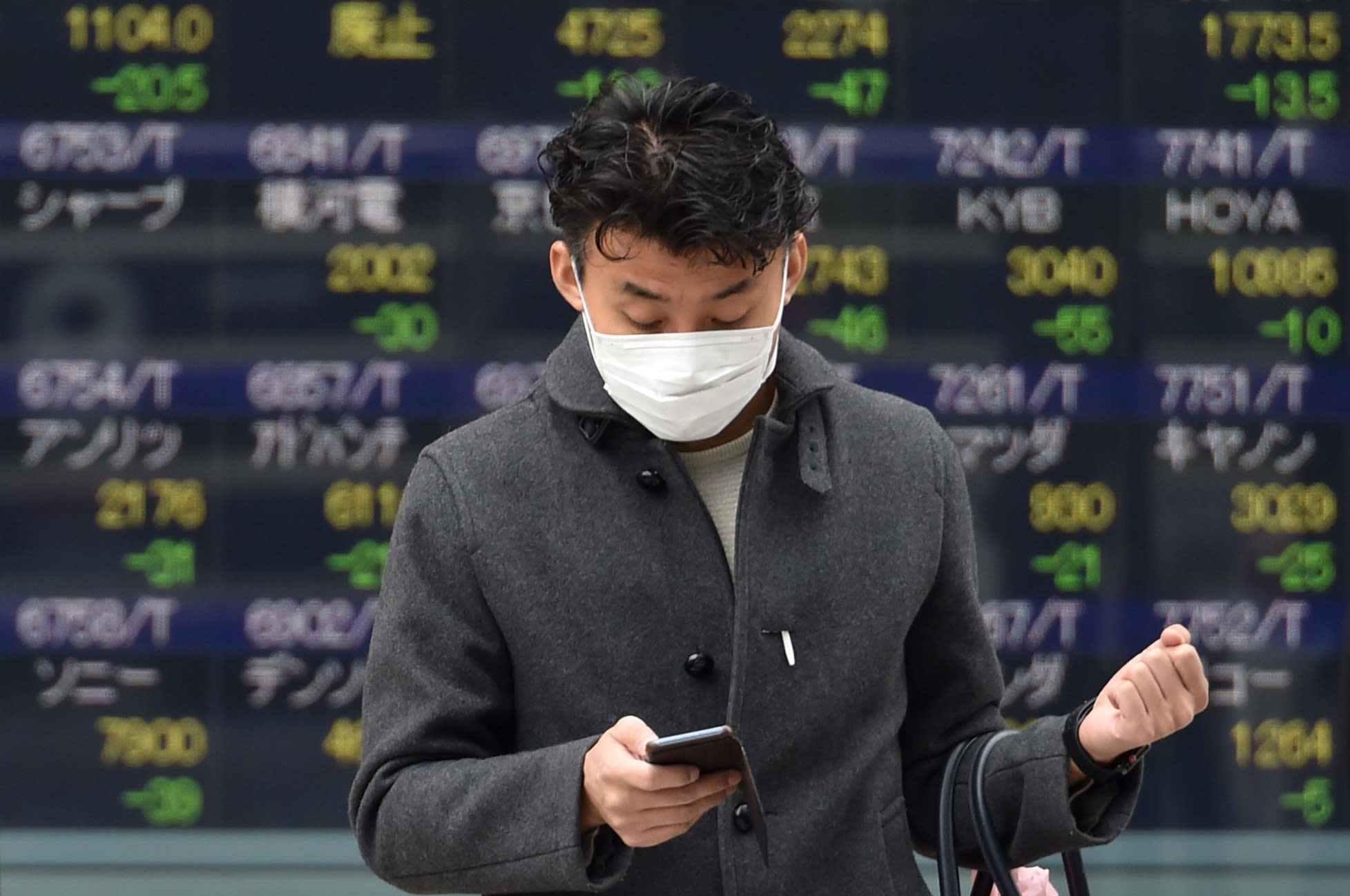
Stocks in Asia Pacific traded mixed Friday afternoon as investors react to recent developments from the U.S. Federal Reserve.
Shares in Japan led losses among the region’s major markets. The Nikkei 225, which earlier fell more than 2%, last traded 1.26% lower while the Topix index shed 0.67%
The moves came following local media reports the country’s Prime Minister, Shinzo Abe, is set to resign.
NHK reported that Abe plans to step down to “deal with a health problem,” citing sources close to the prime minister. A similar report emerged from Kyodo News, citing a source in Abe’s Liberal Democratic Party, that the Japanese prime minister “will step down from his post due to health concerns.”
The Japanese yen changed hands at 106.36 per dollar following the report, after earlier trading at 106.09 against the greenback.
Mainland Chinese stocks were higher in afternoon trade, with the Shanghai composite up 0.56% while the Shenzhen component gained 1.289%. Hong Kong’s Hang Seng index advanced 1.1%.
South Korea’s Kospi gained 0.64%.
The S&P/NZX 50 in New Zealand edged 0.333% higher, after the stock exchange was down for the fourth day in a row following cyber attacks earlier this week. In Australia, the S&P/ASX 200 slipped 0.78%.
Overall, the MSCI Asia ex-Japan index rose 0.39%.
Federal Reserve developments
U.S. Federal Reserve Chairman Jerome Powell announced Thursday a major policy shift by the U.S. central bank to “average inflation targeting.” That means the Fed will allow inflation to run “moderately” above the central bank’s 2% goal “for some time” after periods when it has run below that objective.
The Fed also adjusted its view of full employment to allow gains in the labor market to run more broadly. That indicated that the central bank will be less inclined to raise interest rates when the unemployment rate falls, as long as inflation does not creep up as well.
“All this adds up to a view that the Fed Funds rate is going nowhere at least until the Fed can look 2%+ inflation in the whites of its eyes,” Ray Attrill, head of foreign exchange strategy at National Australia Bank, wrote in a note. “Rates have barely budged at the shorter end of the yield curve, the money market not priced for a first Fed Funds rate rise until about four years from now.”
JPMorgan Asset Managment’s Tai Hui agreed with Attrill’s view, telling CNBC’s “Squawk Box” Friday that the Fed is “likely to keep its policy rates at a a very low level for an extended period of time even beyond … the recovery … from the pandemic.”
“The fact that it’s average rather than … single-sided, it means that the Fed is gonna keep rates very low. So that will be great for risk assets,” said Hui, who is Asia chief market strategist at JPMorgan Asset Management.
— CNBC’s Jeff Cox contributed to this report.
Source: CNBC
